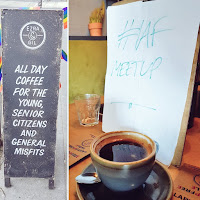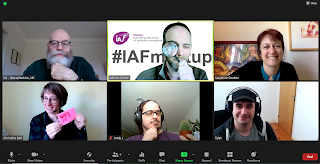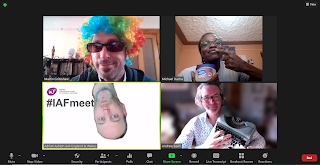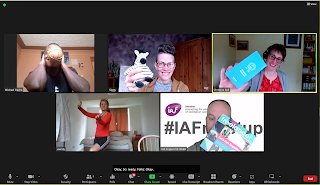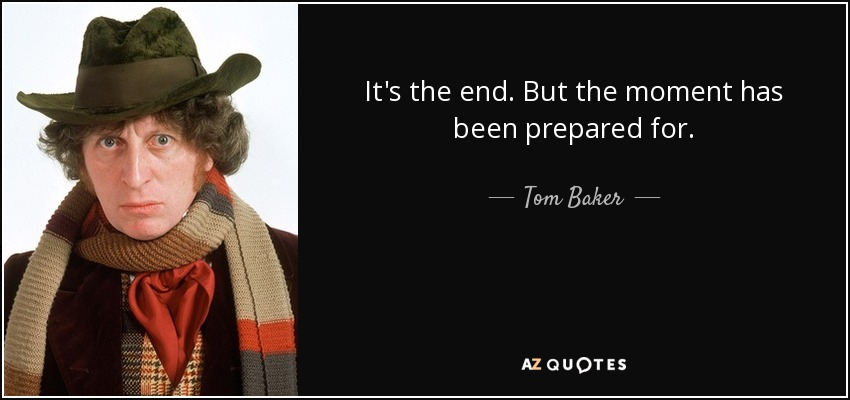Some people regard me as an expert authority on legal and governance forms for social enterprise, community businesses, and co-operatives - and while I always encourage people not to trust any guidance I offer them on this topic (because I'm not academically accredited in legal stuff, and more importantly because I'm not the one who's going to be legally responsible for administering the chosen form), people take encouragement from my achievements in changing company law, navigating Society Rules with the FCA, and finding paths through charity legislation.
Over the decades that I've been supporting people understand these choices, I've created a few tools/prompts to help focus discussions and reflections ('CHAMP' and 'Adrian's 4-boxes') - but this post isn't about those tools - instead it's about a 3-part limited youtube series I was invited to be part of the 'main cast' for.
A contact through one of my networks had approached me to ask if I could help them explore and understand what the best legal form for a new social enterprise they were developing might be. And as we talked about how I might offer guidance and assistance, we hit on the idea of making this a 'performance piece' - drawing back the curtain on how people usually go through this process as an encouragement to the wider sector, and also a working out of some of their (and the emerging enterprises') values.
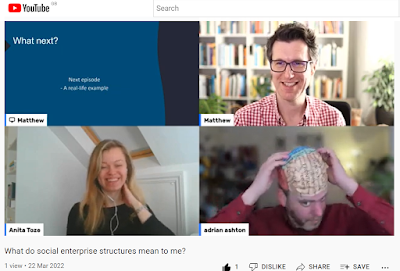 So we scheduled 3 afternoons to talk though approaches to not only understanding why this legal form question is so important to get right, but the different ways we can pick and choose between them, and finally, applying all of this learning in real time/live to their nascent social enterprise.
So we scheduled 3 afternoons to talk though approaches to not only understanding why this legal form question is so important to get right, but the different ways we can pick and choose between them, and finally, applying all of this learning in real time/live to their nascent social enterprise.
There's an 'official' long post on LinkedIn by Matthew Bellringer (the contact that sparked this) where you can get the official story of how this series came to be: https://www.linkedin.com/pulse/foundations-thriving-social-enterprise-matthew-bellringer/ but I wanted to take the opportunity to reflect on how I found this process, in it being different to the ways in which I usually offer this type of support - to pull out what surprised me that I hadn't considered before, what was an encouragement in allowing more time and space to explore than is usually available, and some of the things which you don't normally hear or read about in this area.
So - the below points are what I think are useful framing/warm-up for anyone thinking of approaching either choosing or reviewing a legal or structural form for their social enterprise - if you want to know more about them, you'll have to follow the links to youtube and watch all 3 episodes...
- Comparing
legal structures to buying second-hand car: you wouldn't buy a car without wanting to know some of its history to assure you that it's been built well, and looked after, so why don't we seek the same assurances when deciding between legal forms?
- The risks of using data that maps legal forms used by social enterprise in helping us choose one for our own: as part of the episodes, we looked at research into how far different legal forms are popular/less popular by the wider social enterprise sector. But as you'll see as you watch this segment, this mapping - as undertaken by national sector bodies, often presents a contradictory picture of findings. As with all research, what you find depends on how you ask the question, and whom you ask it of. And it seems that our sector leaders can sometimes do this in ways that might not seem to be that robust..?
- None of the existing tools designed to help you plan your social enterprise model (social enterprise canvases, specialist business plan templates, etc) help you relate your ethos and values to the legal form you'll pick. Which seems a bit bonkers, because your chosen legal form is probably one of the best ways you have to make sure said ethos and values can be best protected into the future. That's why I developed my 'CHAMP' framework, which is profiled in detail through these episodes.
- Your legal structure as a social enterprise can influence your credibility to
lobby and speak out on social issues. For example, charities and CICs are banned from undertaking political activities: but if we're serious about creating systemic change as a social enterprise, then at some point we have to engage with the policy and law makers (which perversely, our chosen form may actually prevent us from being able to do!).
- The
problem with all of the toolkits designed to help making the process of picking
a legal form easier is that they assume you understand the jargon, and underlying concepts associated with legal forms and governance. Which most of us don't, which explains why these toolkits are so underutilised by the wider sector.
- There's a confusion about Members, members, and membership, that knots so may people up when approaching social enterprise legal forms: one has legal power over you, one is a supportive friend, and the other is about collective activism that influences your decision making. Can you tell which is which?
- Stickers
and badges, or legal power – which would people prefer to have in your social enterprise? And which would you want people to have? (remember that there are wider trends going on in society that means formal membership bodies are generally seeing their numbers start to plateau and decline - people may be more interested in being part of you for specific periods, rather than for life).
- We managed to compress over
400 years of legal structures for social enterprise into just over 10 minutes. A new personal best for me!
- How
the regulator for your chosen social enterprise legal form can strengthen others' trust
in your venture. None of the toolkits or other materials 'out there' that I come across to help you decide about legal forms ever talk about the regulators: what they can do to you, how they can support and protect you, and how they may influence how others see you. But this is also a far wider issue and problem: I also see it a lot of start-up programmes, where social entrepreneurs are supported and encouraged to start-up and incorporate their ventures, but then given no support in knowing how to 'look after it' with their respective regulator - leading many early stage social enterprises to suffer fines, penalties, and even enforced winding up because no-one explained to them about the regulators...
- It turns out that knowing how to bake cakes can be very helpful in informing how we approach designing different membership models in social enterprise legal forms.
- Campfire songs can be equally important in the selection of choosing a legal form for a social enterprise.
- and finally - why every social enterprise should be wary of S&M clubs if they’re going to be a CIC.
I've found myself enjoying this process of working with a group to find an answer to a question, and also that it's encouraged us to take more time in how we consider the options and implications - despite doing the whole thing remotely to each other with video calls, etc, it's felt like it's helped to make choosing a legal form a process that's allowed us to be more human.
Episode 1: what's a social enterprise, and why do I care?
https://youtu.be/5T7TzanQh0s
Episode 2: what do social enterprise legal structures mean to me?
https://youtu.be/EaRRsWPfDK0
Episode 3: social enterprise in the real world.
https://youtu.be/JmEi3b6f9_g


.png)


